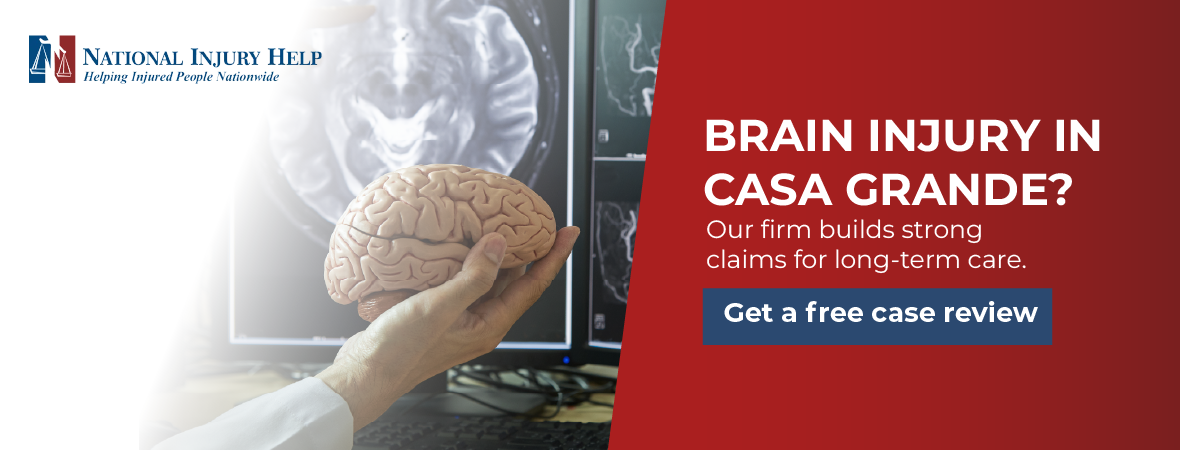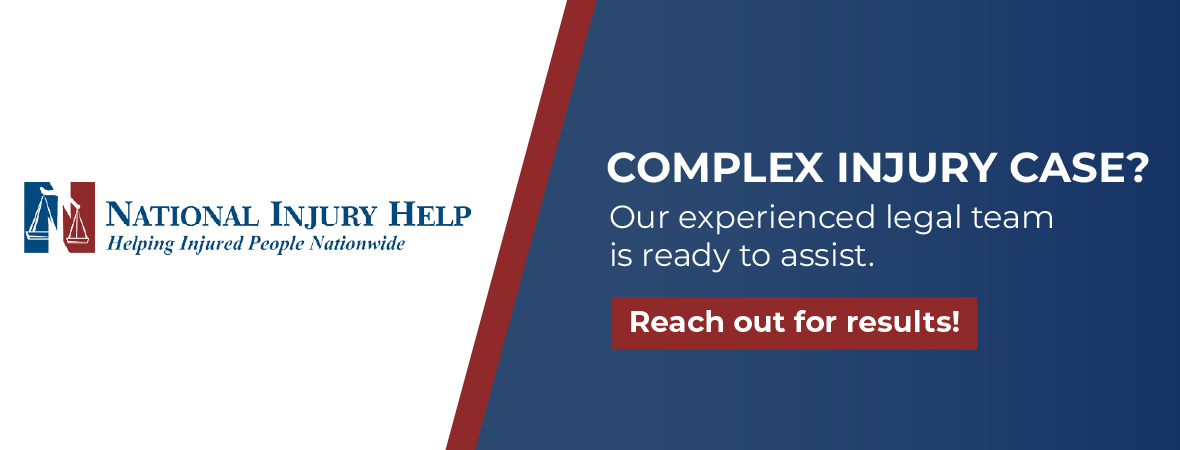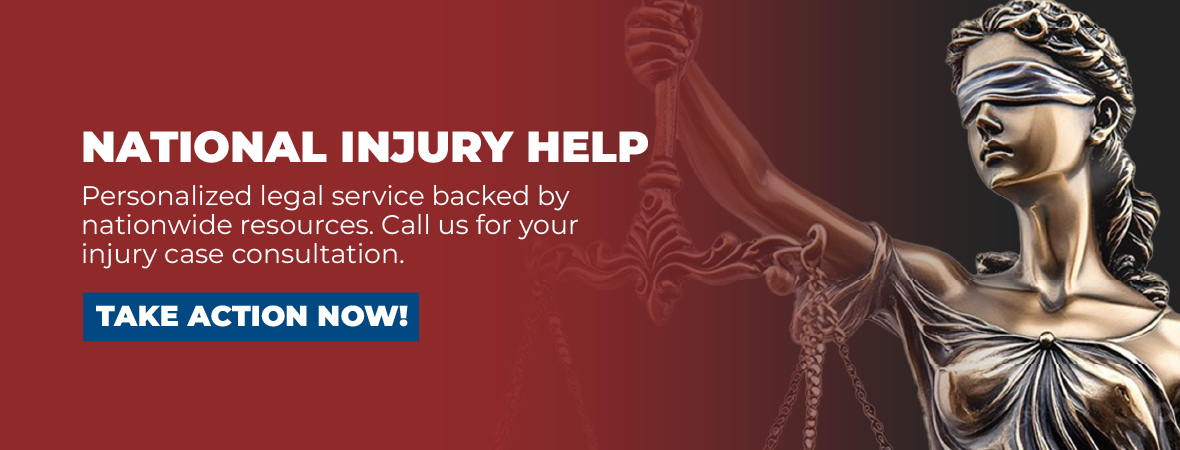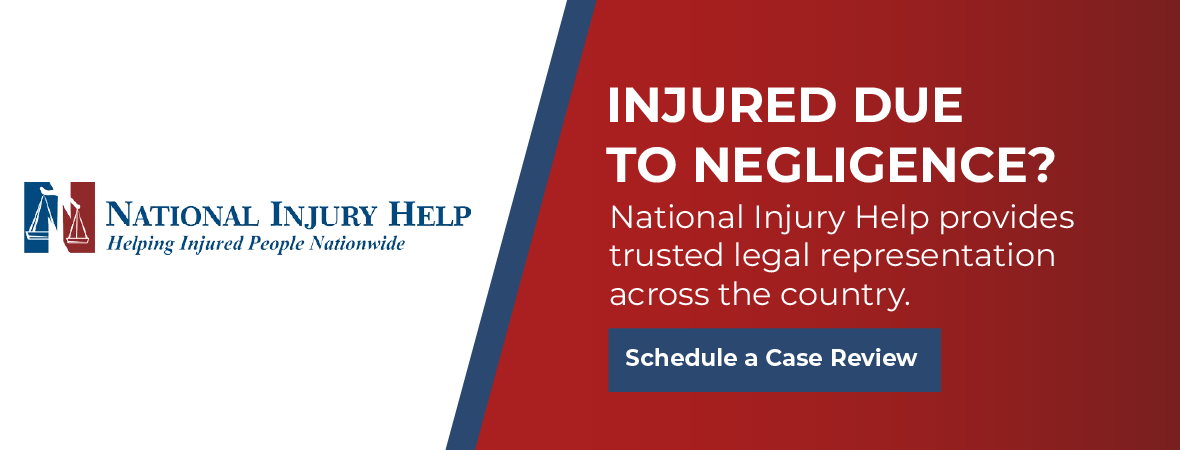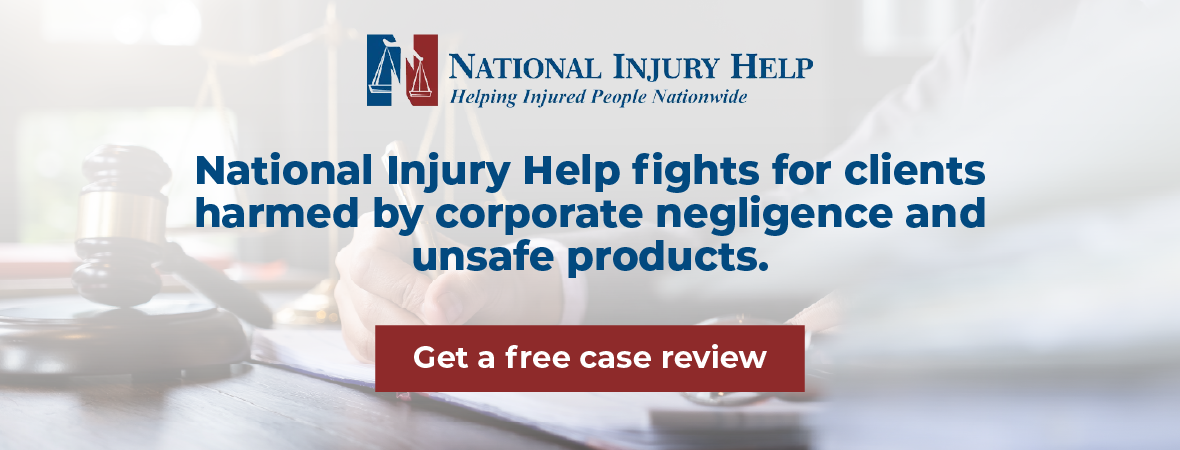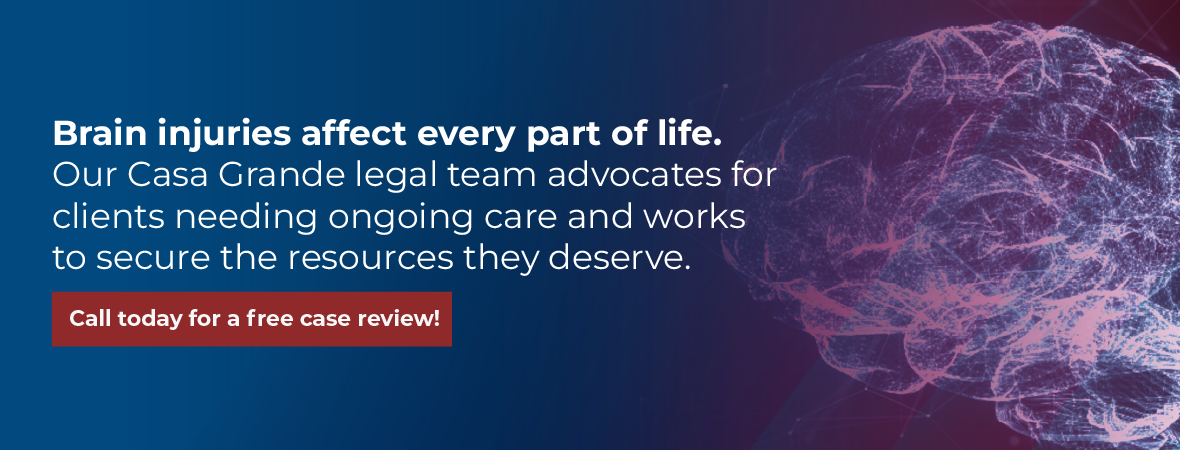Brain injuries can have life-changing effects, from medical challenges to financial stress. Contact National Injury Help by calling 1 (800) 214-1010 today. We are here to support your recovery and fight for your future every step of the way.
Head trauma does not always bleed or bruise on the outside. Sometimes you feel fine for a few hours, then a wave of confusion, nausea, or exhaustion hits with no warning. Friends may notice that you repeat yourself or forget a promise you made minutes earlier.
Families learn that a loved one who seemed “all right” after a crash suddenly needs round-the-clock care, speech therapy, and expensive medication that insurance refuses to cover in full. A brain injury can happen in a car collision, a fall from a ladder at a construction site, or even during a medical procedure when oxygen levels drop.
No matter how it begins, the path toward recovery often looks long and costly. Bills from Banner Casa Grande Medical Center start arriving while you are still trying to rest. Employers ask when you will return, even though you cannot focus on a screen or remember new instructions.
That is where legal help comes in. You deserve a local attorney who understands head trauma, knows the doctors and rehabilitation specialists in Pinal County, and has experience pushing back when insurance carriers try to label a serious injury as “just a bump.”
At National Injury Help we gather the proof that shows what happened, why it happened, and how much money you will need in the months and years ahead.
Common Causes of Brain Injuries in Casa Grande
The city of Casa Grande sits at a crossroads of highways, rail lines, and new housing projects. With growth comes more people and more activity, which means more opportunities for accidents that shake the brain inside the skull. Understanding how these injuries happen lays the groundwork for proving responsibility and demanding fair compensation.
Motor Vehicle Accidents
Car crashes remain the leading cause of traumatic brain injuries in this part of Arizona. A rear-end hit at a stoplight can snap the neck and slam the head against a headrest. A side-impact collision in an intersection can twist the brain inside the cranium even if airbags deploy.
Motorcycle riders face higher odds of severe trauma because they have little barrier between their helmet and a speeding fender. Pedestrians who cross Florence Boulevard during heavy traffic rely on drivers to stop in time, yet one distracted glance at a phone can lead to direct contact between bumper and skull.
Falls
The sound of tires squealing is not the only threat. Many clients come to us after slipping on wet tile in a grocery aisle, missing a loose step on an apartment staircase, or catching a shoe on an uneven sidewalk outside a retail store.
When gravity takes over, the head may strike the floor, a shelf, or a parking curb. Older adults are especially vulnerable because bones thin with age and balance may be weaker, yet anyone can suffer a brain bleed from a fall on hard concrete.
Workplace Accidents
Construction crews along Cottonwood Lane lift heavy beams, run power saws, and climb high ladders. A falling tool or a sudden trip near rebar can send a worker headfirst onto a surface that yields no cushion.
Industrial facilities near Trekell Road use forklifts and overhead cranes that create striking hazards if safety rules slip for even a minute. Employers must follow strict regulations, but shortcuts still happen when deadlines loom.
Sports Injuries or Assault
Youth football leagues, adult softball teams, and weekend soccer matches give Casa Grande families healthy outlets, yet each hit on the field can shake the brain and set off swelling that parents may not notice until a child goes to bed early and wakes up vomiting.
Assaults at bars or private parties also cause blunt force trauma when fists or bottles connect with the head. Even a single punch can trigger a subdural hematoma that requires emergency surgery.
Medical Malpractice or Oxygen Deprivation
Brain tissue depends on oxygen. During surgery or childbirth, mistakes with anesthesia tubes or umbilical cords can deprive the brain of air for minutes that feel like seconds to a stressed medical team.
Newborns with hypoxic injuries may face developmental delays, while adults can lose memory or motor skills after a hypoxia event in an operating room. These cases demand technical reviews of hospital records to spot the moment a vital sign dropped and remained unnoticed.
Types of Brain Injuries and Symptoms
Doctors use many terms to describe damage inside the head. Each term points to different treatment paths and different legal values for ongoing care.
Traumatic Brain Injury
A traumatic brain injury, often shortened to TBI, covers a wide spectrum. It may come from a direct blow, a sudden jolt, or an object penetrating the skull. The force causes neurons to stretch or tear and blood vessels to leak.
Symptoms range from brief loss of consciousness to deep coma. Some people recover full function after rest, while others need speech therapy, occupational therapy, and medication for seizures or mood swings.
Concussions
A concussion sits on the mild end of the TBI scale, yet the word mild belongs to doctors, not patients. Repeated headaches, trouble concentrating, light sensitivity, and sudden emotional swings can linger for months.
Athletes once played through concussions, but modern medicine warns that a second hit before the first injury heals can lead to permanent cognitive decline. Documentation of each symptom helps prove that what looks mild on paper costs real energy and time in daily life.
Brain Hemorrhages and Swelling
Bleeding inside the skull builds pressure that the rigid bone cannot release. Surgeons may drill burr holes or remove a skull section to allow the brain room to expand.
Even quick action can leave scar tissue that alters speech patterns or balance. Swelling alone, without bleeding, can pinch nerves and disrupt the signals that control organs, sleep cycles, and emotional regulation.
Anoxic Brain Injuries
When oxygen stops flowing, brain cells begin to die within minutes. A near-drowning in a backyard pool, a cardiac arrest during a workout, or a misplaced breathing tube during surgery can starve neural tissue.
Survivors may appear awake yet lack short-term memory or feel lost in familiar rooms. Rehabilitation focuses on re-learning basic tasks like dressing and brushing teeth, which adds daily assistance costs that last a lifetime.
Cognitive, Emotional, and Physical Symptoms
No two brain injuries look the same, but many share telltale signs. Memory blanks appear like holes in a timeline. Confusion turns routine errands into mazes. Depression creeps in when the injured person notices new limits.
Personality may shift toward irritability or apathy. Speech can be slow or slurred, while muscles twitch or seize without warning. Any one of these symptoms disrupts work, school, and family harmony. Together, they redefine identity unless therapy, medication, and patience intervene.
Long-Term Consequences of a Brain Injury
Healing does not end when stitches come out. Many clients call us months after a crash because new barriers keep popping up. Understanding these long-term consequences helps calculate full compensation rather than stopping at immediate hospital bills.
Physical Challenges
Some survivors lose fine motor control in their fingers and toes. Others face partial paralysis on one side of the body that forces them to relearn walking with a cane.
Chronic headaches or nerve pain can arise every afternoon and steal energy needed for meals or social time. Fatigue becomes a daily companion because the brain works harder to route signals around damaged areas.
Cognitive Impairment
Tasks that once felt automatic, such as balancing a checkbook, following a recipe, or remembering a friend’s birthday, now require intense concentration.
Lowered processing speed means conversations move too fast, causing frustration for both the injured person and loved ones. Classroom learning may stall for children, and adults may struggle to finish certification tests essential for their careers.
Behavioral and Emotional Impact
A gentle personality can turn aggressive because the injury damages impulse control. Laughter may erupt at the wrong moments.
Tears might fall without a clear trigger. Anxiety grows when memory fails in public, and depression deepens as plans for sports, travel, or promotion fade from reach. Families often walk on eggshells, unsure which version of their loved one will appear each day.
Impact on Work and Independence
Loss of attention, speed, or physical dexterity pushes many survivors out of their jobs. Some can shift to part-time roles with lower pay, yet the gap between old salary and new income widens household stress.
Daily living tasks such as driving, shopping, and cooking may now require help from aides or family members. That support costs money or time that someone must supply.
Strain on Families and Caregivers
Spouses pick up double duty to handle bills, chores, and child care. Children grow up faster when they help a parent remember medication or appointments.
Savings meant for college or retirement flow into home modifications, adaptive equipment, and niche therapies that insurers label experimental. The emotional weight of watching a loved one struggle can lead to caregiver burnout and health problems within the support circle.
What to Do After a Brain Injury in Casa Grande
Fast action saves lives and strengthens legal claims. Yet brain injuries often hide behind normal speech and steady walking until later. That delay makes the following steps even more important.
Get Medical Help Immediately
If you suspect a head injury, call 911 or go to Banner Casa Grande Medical Center. Demand a full evaluation that may include a CT scan or MRI. Early imaging spots bleeds before pressure climbs. Keep every discharge summary, prescription note, and follow-up order; these documents trace a straight line from incident to diagnosis.
Document the Injury and Symptoms
Start a journal or voice memo on day one. Note headaches, vision changes, sleep trouble, and mood swings. Record how long activities take compared to before the accident. Bring the journal to each doctor visit so observations can be entered into the medical file. Even small details add weight when an insurance adjuster questions the severity of your claim months later.
Report the Incident
File a police report if the injury came from a crash or assault. Tell a store manager or property owner about a slip hazard and ask for an incident report.
Notify a supervisor immediately after a workplace accident. Written notice triggers investigation requirements and prevents defendants from saying they heard nothing about the event.
Avoid Speaking With Insurance Companies Alone
Brain injuries create memory gaps that adjusters can exploit. They may ask compound questions that confuse even healthy people. Politely give your name, contact information, and the date of the incident, then explain that all future communication will go through your lawyer.
Contact a Brain Injury Attorney Promptly
Evidence dries up fast. Security videos loop over old footage, witnesses move, and skid marks wash away in the next rain. A lawyer sends preservation letters, hires investigators, and arranges expert evaluations before proof disappears.
Early involvement also helps coordinate medical care because some providers need letters of protection to delay billing until the claim settles.
How a Casa Grande Brain Injury Attorney Can Help
Legal representation in a head trauma case involves medicine, economics, and human storytelling. Our office blends these elements into one clear picture that convinces insurers or jurors to grant full and fair compensation.
Investigate the Cause of Injury
We gather crash reports, OSHA logs, property maintenance records, and hospital charts. Our team interviews eyewitnesses while memories stay fresh. We bring in accident reconstruction specialists to model vehicle speeds or slip angles. We review surveillance footage frame by frame. Each piece answers a question about what happened and who could have prevented it.
Calculate the Full Value of the Case
A single hospital invoice rarely tells the whole story. We collect estimates for future surgeries, medication plans, therapy sessions, and assistive devices. Economists project lost wages by comparing your career path before the injury with new limits after.
Life-care planners price out in-home nursing, wheelchair accessible vans, and home renovations such as ramps and widened doorways. By adding these numbers, we create a demand that covers your entire lifetime, not just the current year.
Handle Insurance and Legal Negotiations
Carrier representatives often delay responses, hoping bills will push you to accept a low settlement. We set firm deadlines and request written explanations for every denial.
When adjusters say a treatment is unnecessary, we send reports from board-certified neurologists that prove otherwise. Each letter and phone call moves the claim forward and builds a record that shows the insurer’s conduct if the case reaches court.
Work With Neurologists, Economists, and Life-Care Experts
Medical experts explain test results in language jurors understand. Economists break down future earnings losses into clear charts.
Life-care planners illustrate a typical day for someone with your specific injuries, detailing the cost of caregivers, home modifications, and therapies. These professionals add credibility that no personal testimony can match. We coordinate their schedules, prepare them for depositions, and present their findings in a unified narrative.
Represent You in Court if Needed
Most cases settle outside trial, yet our willingness to go before a Pinal County jury increases settlement offers. We file complaints that cover every legal theory from negligence to product liability.
We depose defending experts, challenge weak opinions, and file motions to exclude unfair evidence. On trial day, we use medical models, video animations, and witness stories to show exactly how the accident changed your brain and your life.
Compensation You May Be Entitled To
Money cannot restore a lost memory or steady a shaking hand, yet it pays for tools an|d care that ease the burden. Arizona law allows several categories of damages.
Medical Expenses
Compensation starts with ambulance fees, emergency care, diagnostic imaging, intensive care, and surgery. It then stretches into rehabilitation, prescription medication, counseling, and future procedures.
Lost Wages and Earning Capacity
Time spent in hospitals and therapy rooms erases paychecks. Cognitive limits may end a career entirely. Damages include both past wages already missed and future income you would have earned in a normal life path.
Pain and Suffering
Physical pain from headaches, nerve damage, and muscle spasms combines with mental anguish from confusion, anxiety, and fear. The law values this suffering because it robs joy, even when bills are paid.
Loss of Consortium
A spouse may lose companionship, affection, or marital intimacy because the injury changes personality and energy levels. Arizona recognizes this impact on family life and allows separate compensation.
Punitive Damages
If the injury resulted from extreme recklessness, such as a drunk driver speeding through a red light, courts may award additional money to punish the wrongdoer and discourage similar acts.
FAQs About Brain Injury Claims in Casa Grande
How do you know if you have a valid case after a head injury?
To know if you have a valid case after a head injury, you need proof that someone’s negligence caused the event and that the injury led to measurable losses. Medical records and incident reports usually supply that proof.
What if symptoms show up days later?
Delayed onset is common. Seek medical care as soon as signs appear and tell the provider about the earlier incident. The link remains strong when documented quickly.
How long do you have to file?
Arizona gives two years from the injury date for most claims. Cases involving government agencies require notice within one hundred eighty days.
Can you sue if you share partial fault?
Yes. Arizona’s comparative negligence still allows you to sue if you share partial fault. However, it reduces damages by your percentage of blame, but does not bar recovery.
How long will a brain injury case take?
Simple claims may settle within months. Severe injuries with future cost projections often require twelve to eighteen months, and trial schedules can extend that timeline. Early legal action always speeds progress.
Contact a Casa Grande Brain Injury Attorney Today
Brain injuries call for swift and skilled action, both in hospitals and in courtrooms. The legal maze feels daunting when you already face therapy appointments and emotional stress.
We understand the roads where crashes occur, the companies that insure local businesses, and the procedures inside Pinal County Superior Court. National Injury Help works on contingency, so you pay no fee unless we secure compensation.
We serve Casa Grande, Arizona City, Eloy, Coolidge, Maricopa, and every community in the desert corridor. If you or a loved one suffered a brain injury, do not wait while evidence fades and deadlines creep closer. Call a TBI lawyer in AZ at 1 (800) 214-1010 for a free consultation. Together we can take the first step toward healing, justice, and the financial stability your family needs. Let us handle your head trauma compensation in Casa Grande today.





